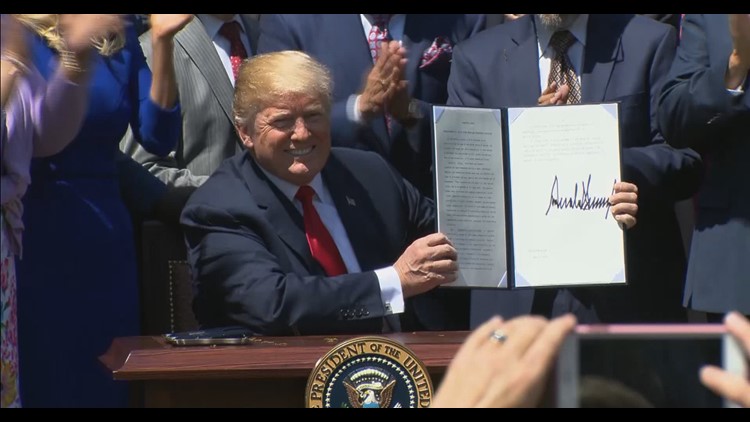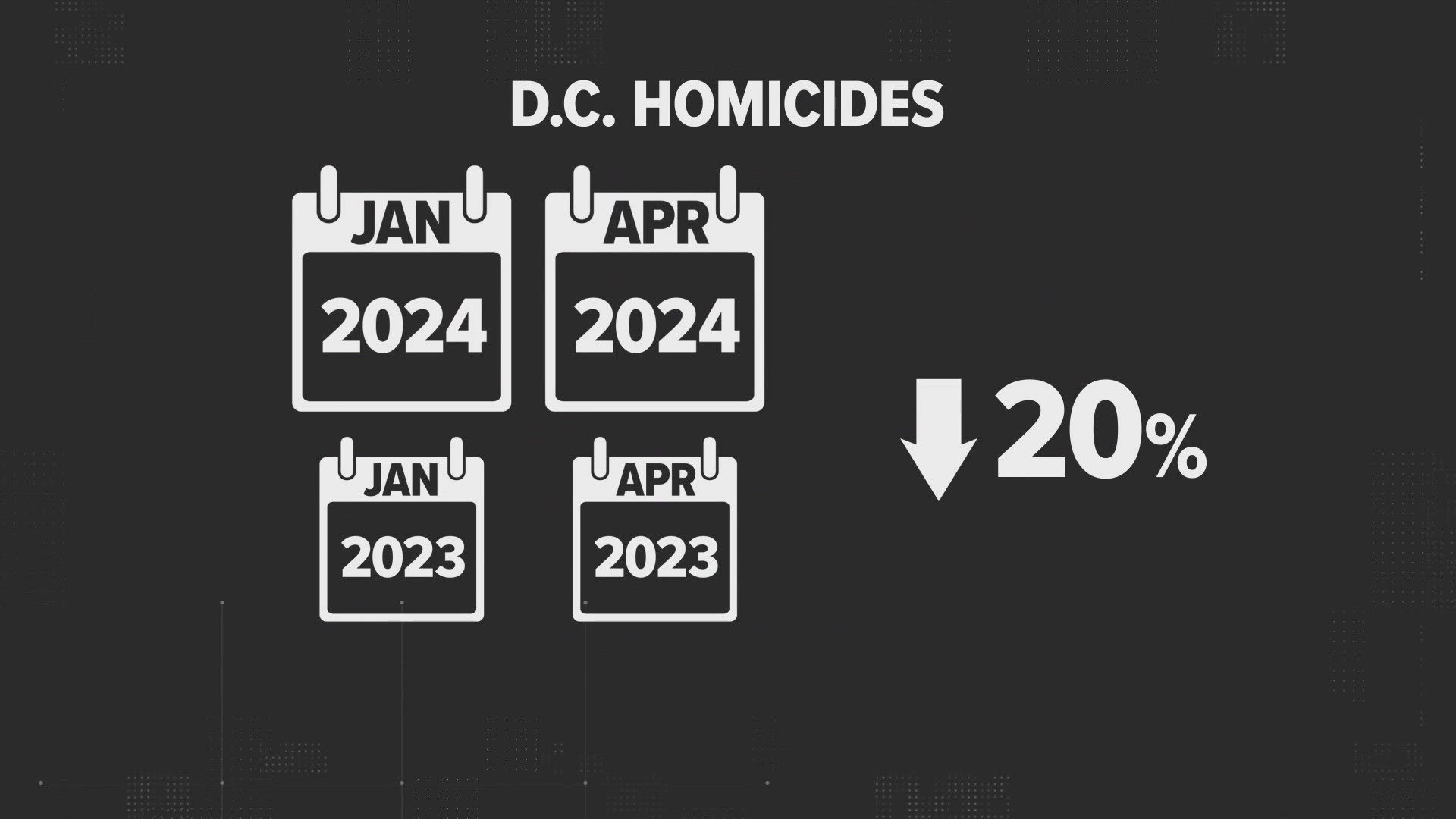VERIFY: Trump violates Church and State? — QUESTION:
Is Trump's faith-based initiative--an executive order signed on National Prayer Day--a violation of Church and State?
ANSWER:
No. It is not unconstitutional for religious and community leaders to counsel the president on local matters.
SOURCES:
Daniel Mach- Director- ACLU Program on Freedom of Religion and Belief
Marty Lederman- Georgetown University Law Center
David Super- Georgetown Professor of Law (Constitutional Law)
President Trump Executive Order: Establishment of a White House Faith and Opportunity Initiative
President Obama Executive Order: Fundamental Principles and Policymaking Criteria for Partnerships with Faith-Based and Other Neighborhood Organizations
President Bush Executive Order: Responsibilities of the Department of Homeland Security with Respect to Faith-Based and Community Initiatives
PROCESS:
With all the fake news clogging the internet, Verify is exists to fish out the fake news to cut to the truth.
This meme from the group "Occupy Democrats" is stirring up controversy with nearly one-hundred thousand shares.
It says Trump signed an executive order creating a "religious office" to give religious groups a "voice in government" and, that violates the separation of Church and State.
So did Trump create an unconstitutional office?
Our team inspected Trump's executive order and it sets up a "Faith and Opportunity Initiative," not an "office." Still, it does create a line of communication between faith based groups and the White House.
According to constitution law experts at Georgetown University and the ACLU, setting up the initiative is not unconstititutional in itself.
"The President, or any official, can consult with whomever she or he pleases," David Super of Georgetown University said.
The group is allowed to advise Trump to determine how to allocate federal funding for religious programs, but anything beyond that would be problematic.
"He would need non-religious reasons for any official acts," Super said.
Under the first amendment, "Congress shall make no law respecting an establishment of religion, or prohibiting the free exercise thereof." That means Americans have the right to practice his or her religion, or no religion at all.
Congress is banned from favoring one religion over another, but they're not restricted from seeking advice from religious and community leaders.
ACLU's Director on Freedom of Religion and Belief Daniel Mach says he'll be keeping a close watch on Trump's Initiative.
"The issue is not whether the president can seek non-binding, informal advice from a variety of community leaders, include religious ones; government officials have done so in the past and will undoubtedly continue to do so going forward," Mach said. "The big question is whether this new bureaucratic structure will lead to actual unconstitutional policies and practices."
So we can Verify - FALSE, the President's Executive order is not unconstitutional.



